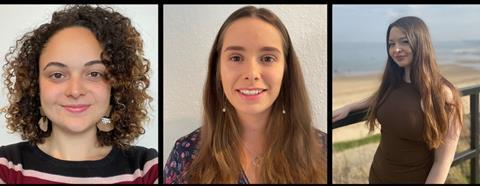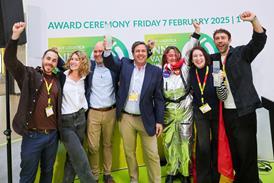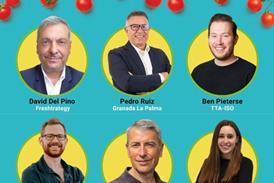MDS takes part in judging panel in initiative aimed at finding solutions to industry challenges
A global higher-education initiative, the Sustainable Business Challenge, selected the food and fresh produce supply chain as its focus for this year’s challenge.
Over 100 students from across the world took part in the award-winning competition, which kicked off in March, to develop an idea for a responsible, innovative enterprise that would support the food and fresh produce industry to become more sustainable.
This was the first year the challenge was aligned to a specific sector, with previous challenges set more broadly around a specific business or location, such as the Province of Groningen, UK Civil Service and Amsterdam Metropolitan Area.
Food and fresh produce training scheme MDS was selected as the employer of choice to judge the challenge and provide background and context on the industry. MDS seconds graduates into the supply chain as part of its two-year management training and has recently introduced a non-graduate training scheme.
MDS COO Sapphira Waterson, who was part of the final judging panel, said: “It was fantastic to see students from across the world come together to learn more about the fresh produce supply chain and develop creative solutions to some of the real world challenges the industry needs to address.”
The challenge was delivered in collaboration with six academic institutions across the globe including the University of Liverpool, Vrije Universiteit (Amsterdam) and the University of Cape Town (South Africa).
The 125 students were selected by their universities to participate in the challenge, none of whom had prior experience of the industry.
Paul Cullingham, part of the Employer Connections Team at the University of Liverpool, explained: “Every year, we have a lead employer partner from a different industry who sets the challenge and helps provide the students with valuable context into the challenge theme. This year we chose MDS and the fresh produce sector because of the huge amount of press coverage surrounding the industry as a result of Brexit and the pandemic.”
Working in cross-university teams, the students were placed into groups of three to six and over the course of five days created a business proposal and pitch deck over Microsoft Teams with the support from business advisors.
The Winners

Teams developed innovative solutions, which they presented via a digital pitch to a panel of business professionals, including representatives from MDS Members, international crop protection company Syngenta and major retailer Morrisons.
Sarah Battersby (Newcastle), Eleanor Shoebridge (Liverpool) and Mariana dos Santos Soares Pinto (Vrije) were the challenge winners. The judges selected their community food waste cookery school concept because of its proposed impacts on both food waste and community within a local area.
The team said: “Green Plate would offer weekly cooking classes to educate people on how to cook with food waste and surplus ingredients. We aimed to reinstall a greater appreciation for food and increase awareness of the impacts of food waste on the environment while also tackling issues of loneliness. We now have a greater appreciation for the logistics behind the supply chain and a greater awareness of the challenges suppliers face in delivering quality produce to retailers. It made us realise how costly it is to create and build a business with real estimates.”
MDS chair Christine Tacon will offer career coaching sessions to the winning group as well as CV and interview prep sessions to the second-place team. MDS is looking forward to building on its career outreach campaigns with the launch of the new Operations and Development programme and Leadership and Management programme earlier this year, which will also offer opportunities to non-graduates and career changers.
“Having someone independent, not in your school or business and not a friend, but who knows you and looks at your career from the outside is so important. They encourage you, nudge you and point out the obvious when you are not happy or not fulfilling your potential. I was pleased that the prize for winning the Sustainable Business Challenge was to expose undergraduates to mentoring so they could experience the value that can add, even if just one session.”







